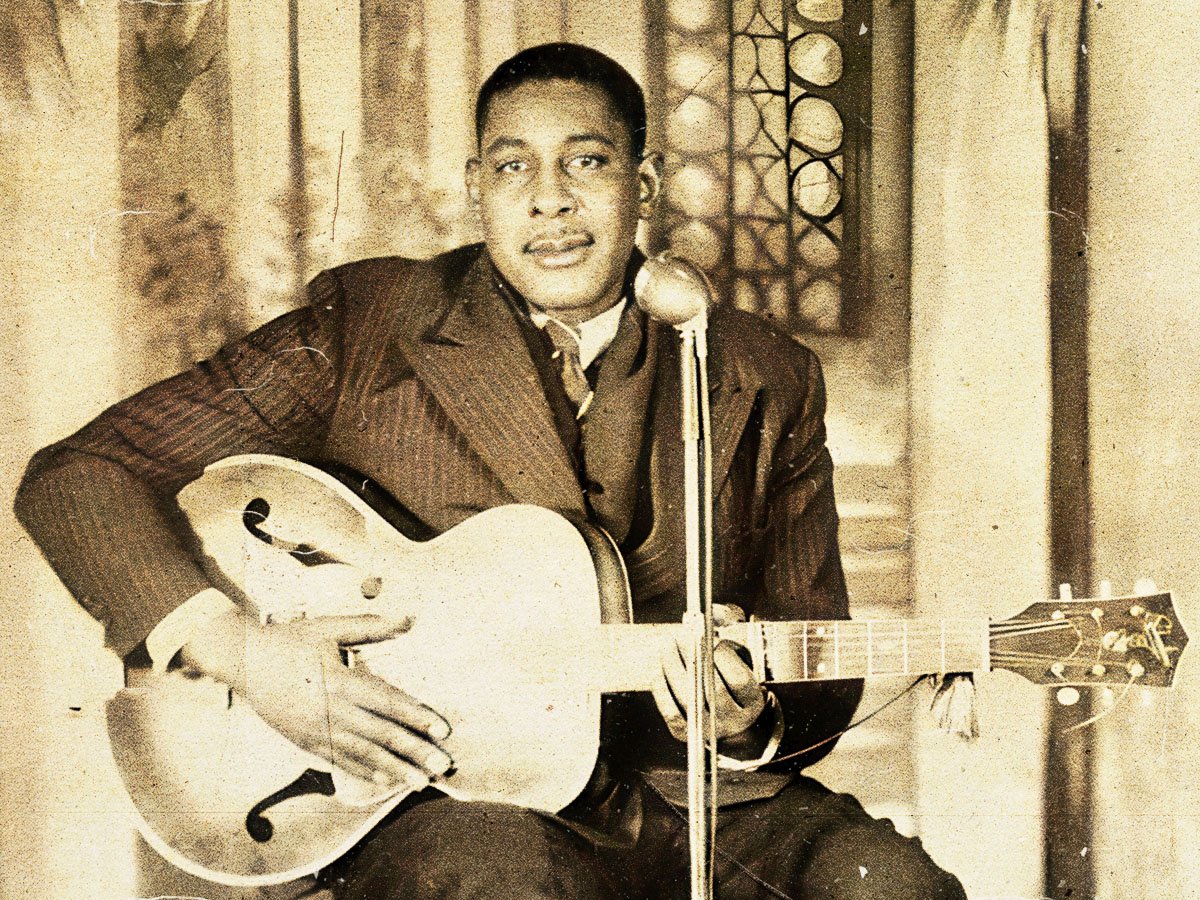Arthur “Big Boy” Crudup was a towering figure in the history of blues music, both literally and figuratively. Known for his raw, heartfelt vocals and driving guitar rhythms, Crudup played a vital role in shaping post-war blues and left an indelible mark on the development of rock ‘n’ roll. His music, particularly through its influence on artists like Elvis Presley, continues to echo through generations of popular music.
Early Life and Musical Beginnings
Arthur Crudup was born on August 24, 1905, in Forest, Mississippi, though some records list his birth year as 1909. Raised in a rural, impoverished setting, Crudup grew up in a world where music was a community experience, deeply rooted in the African American church and rural traditions of the South. Like many bluesmen of his generation, he was initially exposed to music through gospel singing in church.
In the 1930s, Crudup worked as a laborer throughout the Mississippi Delta and eventually migrated north to Chicago in the early 1940s. It was there that his musical career truly began.
Rise to Fame
Crudup’s fortunes changed when he was discovered by producer and talent scout Lester Melrose. In 1941, Melrose arranged for Crudup to record for Bluebird Records, a subsidiary of RCA Victor. His debut recordings, including songs like “Death Valley Blues” and “If I Get Lucky,” quickly established him as a compelling new voice in blues music.
His most famous recordings came in the mid-1940s, with hits such as “That’s All Right,” “My Baby Left Me,” and “So Glad You’re Mine.” These songs showcased Crudup’s signature style: a booming voice, insistent guitar riffs, and lyrics steeped in emotion and everyday struggles. Though he never achieved massive commercial success during his lifetime, his music resonated deeply within the African American community and influenced many aspiring musicians.
Influence on Rock ‘n’ Roll
Arthur Crudup’s legacy reached new heights in the 1950s when Elvis Presley recorded covers of several of his songs. Presley’s 1954 version of “That’s All Right” at Sun Studio in Memphis is widely considered one of the first rock ‘n’ roll records. Elvis also covered “My Baby Left Me” and “So Glad You’re Mine.”
Despite the massive popularity of these covers, Crudup received little financial benefit from them. Due to exploitative contracts and lack of legal representation, he struggled to receive royalties for his work. Crudup himself once said, “I wrote them songs, but I never got paid.”
Later Years and Comeback
Disillusioned with the music business, Crudup returned to Mississippi and resumed working as a laborer to support his family. For many years, he lived in relative obscurity, but during the 1960s blues revival, interest in his music was reignited. He began performing again, mainly for college audiences and at blues festivals.
He recorded several albums during this period, including “Roebuck Man” and “Mean Old Frisco Blues.” Though these albums did not bring mainstream success, they helped restore some recognition to Crudup’s name and introduced his music to a new generation.
Death and Legacy
Arthur “Big Boy” Crudup died on March 28, 1974, in Nassawadox, Virginia, at the age of 68. He left behind a powerful musical legacy, even if he did not receive the recognition or compensation he deserved during his lifetime.
Today, Crudup is remembered not just as a bluesman, but as a foundational figure in the creation of rock ‘n’ roll. His songs remain staples of the American music canon, covered and celebrated by artists across genres. The Mississippi Blues Trail commemorates his contributions with a marker in his honor, cementing his place in blues history.
Conclusion
Arthur Crudup’s life was a story of immense talent, perseverance, and injustice. A true pioneer of the electric blues, his influence can be heard in the work of Elvis Presley, Led Zeppelin, and countless others. While the music industry may have failed to honor him adequately during his life, history has since acknowledged the depth of his contribution to American music. Arthur “Big Boy” Crudup will forever be remembered as one of the unsung heroes who helped shape the sound of modern music.


Comments are closed